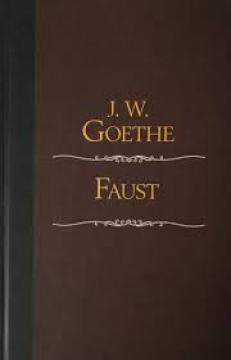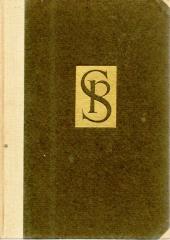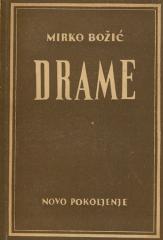
Faust
Johann Wolfgang von Goethe's "Faust" is one of the most important works of world literature. This monumental two-part philosophical and poetic poem explores profound questions of human existence, morality, knowledge, happiness, and destiny.
The first part of the work focuses on the story of Faust, a scientist and scholar dissatisfied with his life and the limitations of human knowledge. Although he has achieved a lot, Faust feels empty and purposeless. In desperation, he turns to magic and invokes the spirit of the Earth, but even that does not give him satisfaction. He thinks about suicide, but is distracted by church bells and the singing of Easter hymns.
Soon, Faust makes a pact with Mephistopheles, the devil who promises him the fulfillment of all his wishes in exchange for his soul. Faust agrees, but on the condition that Mephistopheles gives him a moment of perfect happiness, so fulfilling that he wants to stop time.
Faust begins a hedonistic and adventurous life with Mephistopheles. Along the way, he meets Gretchen (or Margareta), a young girl with whom he falls obsessively in love. With the help of Mephistopheles, Faust seduces Gretchen, which leads to a series of tragic events. Gretchen loses her reputation, her mother dies because of the potion that Faust gives her, and her brother Valentin is killed in a duel with Faust.
In the end, Gretchen ends up in prison for infanticide, after she kills her child born from her relationship with Faust in desperation. Although Faust tries to save Gretchen, she refuses to run away and asks God for forgiveness. The first part ends with Gretchen's death and her spiritual salvation.
The second part is significantly more complex and abstract, crossing the boundaries of individual destinies to explore universal themes. Faust travels through different eras and worlds, exploring beauty, power, science and society.
The plot includes encounters with historical and mythological characters such as Helen of Troy, who symbolizes the ideal of beauty and harmony. Faust strives to create a perfect world and participates in grandiose projects, such as conquering the country and creating a utopian society.
In the end, Faust finds satisfaction in his vision of social progress and his desire to improve the human condition. At that moment, he utters the words signifying his desire to stop time, thus Mephistopheles claims his soul. However, the angels intervene and Faust is saved because of his noble aspirations and remorse.
No copies available
The last copy was sold recently.





